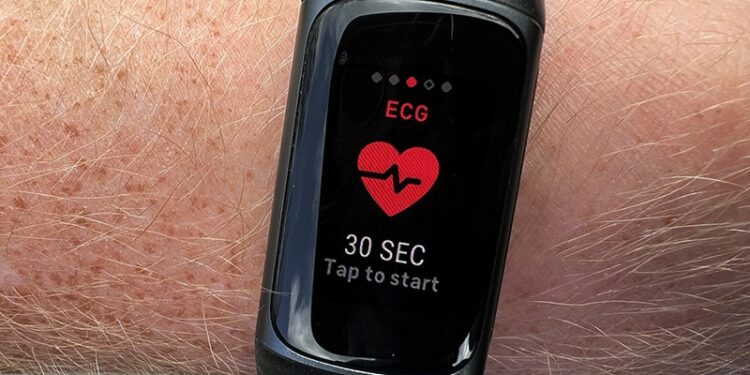Wearable technologies such as smartwatches are providing physicians with new ways to monitor their patients’ health and detect cardiovascular risk factors. Metrics like daily step totals and average resting heart rate are already being used to predict cardiovascular health. Zhanlin Chen, a medical student at Northwestern University in Chicago, Illinois, however, has developed a new combined metric that could provide a more reliable indicator of heart health.
“Daily steps are a known predictor of cardiovascular health,” said Chen. “But it is an indirect indicator. It [only] shows how much we move, which we hope translates into predicting outcomes.”
Such indirect data never provide a full picture. Two people, for example, might each take 10,000 steps a day, but if one has a much higher heart rate that could be a sign their heart is working harder than it should be. Likewise, a heart rate outside the context of a person’s physiological exercise would also feel incomplete. Combining these two metrics, said Chen, by dividing the average daily heart rate by the number of steps taken per day, could provide a deeper insight. “When we integrate those two measures — heart rate and step count — that is a better indicator of how their heart is doing than those two measures alone.”
The All of US Research Program
Chen and colleagues used data from 7000 adults who provided data from Fitbit smartwatches and electronic health records to the All of Us research program, a nationwide prospective study supported by the National Institutes of Health. They found that people with an elevated daily heart rate per step — those in the top 25% — had worse cardiovascular outcomes than those in the lowest quartile.
They were twice as likely to have type 2 diabetes, 1.7 times as likely to have heart failure, 1.6 times as likely to have high blood pressure, and 1.4 times as likely to have coronary atherosclerosis. No association was found between elevated daily heart rate per step and the risk of stroke or heart attack.
Eugene Yang, MD, a cardiologist at the University of Washington, Seattle, who studies the use of wearables and other new technology in medicine, said that although this new metric needs to be validated using more granular randomized or prospective studies, it is a promising sign of how wearable technology in the future could be used to improve people’s health.
“We’re entering a really exciting time,” he said. “If you are able to measure many things accurately — blood pressure, oxygen saturation, heart rate, daily activity, sleep — that would be much stronger in terms of prediction of risk.”
Chen hopes his new metric will be validated in further studies and could be incorporated into clinical calculations of heart disease risk, which currently does not consider people’s fitness or other environmental and physiological factors.
“We could look at incorporating wearables data into cardiovascular disease risk estimates,” said Chen. “That hopefully would translate into changes in medical interventions and risk stratification and screening.”
Source link : https://www.medscape.com/viewarticle/new-smartwatch-metric-points-overall-heart-health-2025a10007kk?src=rss
Author :
Publish date : 2025-03-29 19:03:00
Copyright for syndicated content belongs to the linked Source.














